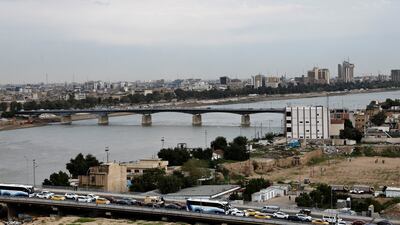Curbing corruption across Iraq’s state institutions must be a top priority for future governments, experts told The National, as the country marked two decades since the US-led invasion.
The period following the 2003 war was marked by unemployment, civil unrest, terrorism and years without reliable electricity and other public services. It created deadly anti-government protests, a rise in illiteracy and an increasing climate change problem.
It is hard to look ahead with hope for change when the government system was designed to empower leaders and not people, said Renad Mansour, head of the Iraqi initiative at London-based think tank Chatham House.
“It’s difficult because the system was not designed to serve the people as much as it was designed to empower Iraq's incoming leadership in 2003,” Mr Mansour said.
This makes it difficult to curb corruption and fulfil the public’s needs, he said.
Iraq is considered one of most corrupt countries in the world, ranking 157 out of 180 in Transparency International's corruption perceptions index.
Widespread corruption has crippled the country’s efforts to recover from decades of war and UN-imposed economic sanctions that was introduced in the early 1990s.
The Americans with an international coalition pledged to bring democracy to Iraqis before the invasion.
“Instead of democracy and rule of law what happened was the invasion unleashed the cycles of conflict,” Mr Mansour said.
“We've seen some of that conflict with the rise of ISIS, civil war in the earlier days and also corruption that kills Iraqis everyday whether it's in the healthcare sector and others across the Iraqi government.”
Hope for a better future?
Real reforms must be made for Iraq to have the ability to recover quickly, said Sajad Jiyad, a Baghdad-based fellow at the Century Foundation.
“There is potential for Iraq to recover and develop quickly but the political will has to be there, some of them will require reforms to be made,” Mr Jiyad told The National.
Iraq needs more “accountability, transparency and we need to reduce that level of corruption,” he said.
Any government that comes along will have to put corruption on top of its priority otherwise “the state will collapse”, he added.
“It is something that will happen, when I don’t know and it is something that more likely future governments will have to take seriously otherwise we will collapse as a state,” Mr Jiyad said.
The necessity of the people's economic demands will force reforms to happen, said the Iraqi expert.


